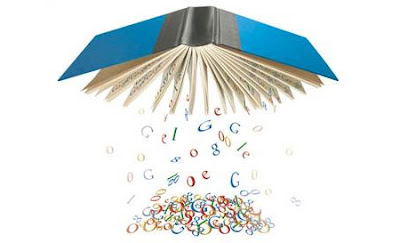by JULIE BOSMAN
Sept 15, 2011
Google's plan to build a huge digital library remained stalled on Thursday when a federal judge set a proposed schedule for a lawsuit against the giant search company that could take the case to trial next year.
But Google and the publisher and author groups who are suing it all said they would continue to negotiate on an agreement.

"The bottom line is, we're making good progress toward a settlement," Tom Allen, the president and chief executive of the Association of American Publishers, said after the hearing on Thursday. "We would hope to resolve the issues we have left."
In March, Judge Denny Chin of the Federal District Court for the Southern District of New York rejected the original $125 million proposed settlement among Google, the Authors Guild and the Association of American Publishers, leaving the case in limbo. The case began in 2005 when publishers and authors filed lawsuits against Google over its plan to digitize millions of books.
Judge Chin had given the groups all summer to revise the settlement, twice granting extensions when lawyers for the groups asked for more time, citing the complexity of the issues. In the hearing Thursday morning, Judge Chin, rubbing his face with exasperation, noted that "this means we will be litigating this case for another year, at least."
Daralyn J. Durie, a lawyer for Google, told the judge that the parties had made "substantial progress" in talks and welcomed the opportunity to continue.
Michael J. Boni, a lawyer representing the authors, said that the authors "would like very much to continue a dialogue."
The publisher plaintiffs hinted that they were closer to an agreement with Google than were the authors. Bruce P. Keller, a lawyer for the publishers, said that his clients had no objection to the proposed schedule.
"One of the reasons we have no objection to it is that we think we've made enough progress in our discussions with Google so that the schedule may not matter," Mr. Keller said. "If we adopt the dates that are being proposed, we hope that those dates will become moot."
In his ruling in March, Judge Chin cited concerns over copyright, antitrust and other issues in Google's plans to make millions of books available online, saying it would give Google a "de facto monopoly," but he suggested that a revised settlement addressing the obstacles might pass legal muster. The incentive for authors and publishers to reach agreement would be to tap a new source of revenue from digitized books.
Negotiations between the Authors Guild and Google were damped by the announcement on Monday that three major authors' groups, including the Authors Guild, had filed a lawsuit against a partnership of libraries and five universities, contending that their efforts to digitize books violated copyright. Nearly all of those scanned works were provided by Google.
